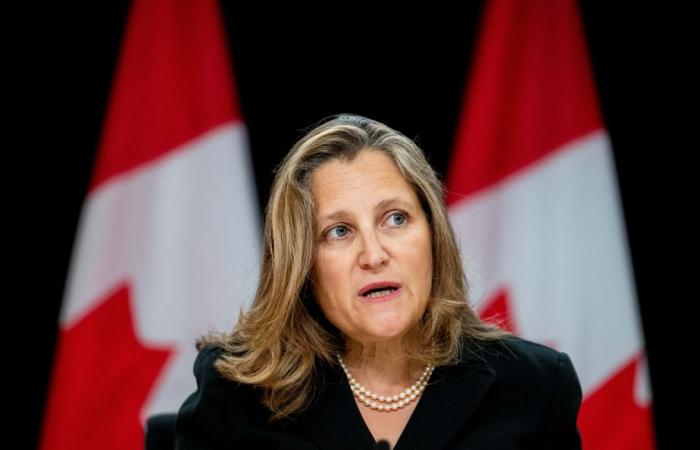(Ottawa) Canada is considering following the United States in banning the sale of connected vehicles that incorporate Chinese technology, Deputy Prime Minister Chrystia Freeland said Tuesday, citing national security risks.
Published at 2:50 p.m.
Electronics are increasingly integrated into modern cars, which can connect to personal devices, other vehicles, infrastructure and their manufacturers – including electric cars and self-driving cars.
Asked at a news conference about the U.S. Commerce Department’s decision to ban Chinese software in vehicles, Chrystia Freeland said Canada also has “real security concerns” about the technology.
PHOTO SPENCER COLBY, CANADIAN PRESS ARCHIVES
Chrystia Freeland, Deputy Prime Minister of Canada
“Our government has made clear that we take China’s intentional overcapacity and the security threat that it poses very seriously,” she said in Ottawa.
“That’s why we acted decisively by imposing tariffs on Chinese electric vehicles. And we are examining whether it is necessary to impose further measures,” she added.
Canada imposed a 100% surtax on imports of Chinese electric vehicles in August, aligning itself with U.S. measures to counter the influx of Chinese cars subsidized by Beijing into North America.
Mme Freeland also indicated earlier this month that Ottawa was considering imposing new tariffs on Chinese critical minerals, batteries, solar energy products and semiconductors.
China has called the measures unfair and has taken the tariffs on electric vehicles to the World Trade Organization (WTO), calling them a “unilateral and protectionist measure.”







